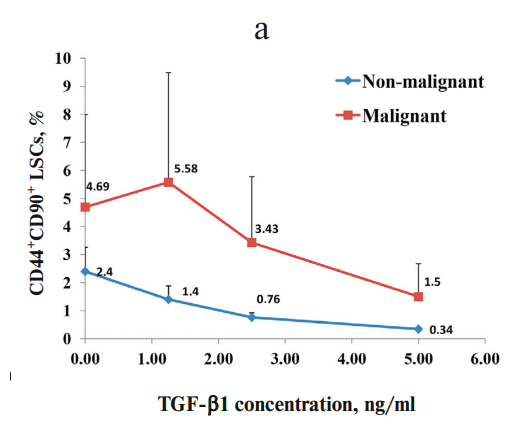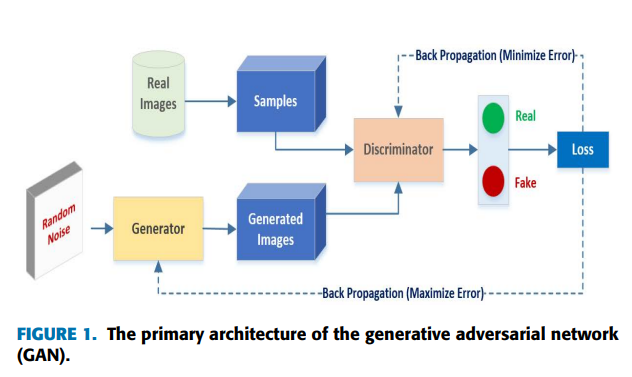
Role of TGF-β1 and C-Kit Mutations in the Development of Hepatocellular Carcinoma in Hepatitis C Virus-Infected Patients: in vitro Study
Transforming growth factor beta (TGF-β) acts as a tumor-suppressing cytokine in healthy tissues and non-malignant tumors. Yet, in malignancy, TGF-β can exert the opposite effects that can promote proliferation of cancer cells. C-Kit plays a prominent role in stem cell activation and liver regeneration after injury. However, little is known about the cross-talk between TGF-β and C-Kit and its role in the progression of hepatocellular carcinoma (HCC). Here, we studied the effect of increasing doses of TGF-β1 on CD44+CD90+ liver stem cells (LSCs) and C-Kit gene expression in malignant and adjacent non-malignant liver tissues excised from 32 HCC patients. The percentage of LSCs in malignant tumors was two times higher compared to their counterparts from the non-malignant tissues. When treated with increasing doses of TGF-β1, proliferation of both malignant and non-malignant LSCs was progressively suppressed, but low TGF-β1 dose failed to suppress the growth of malignant LSCs. Moreover, C-Kit exons 9 and 11 were expressed in malignant LSCs, but not in their non-malignant counterparts. Analysis of C-Kit detected mutations in exon 9 (but not in exon 11) in some malignant liver cells resulting in the changes in the amino acid sequence and dysregulation of protein structure and function. Interestingly, in malignant liver cells, mutations in exon 9 were associated with high-viremia hepatitis C virus (HCV), and expression of this exon was not suppressed by the TGF-β1 treatment at all doses. To our knowledge, this is the first report that mutations in the C-Kit gene in HCC patients are associated with high-viremia HCV. Our study emphasizes the need for investigation of the TGF-β1 level and C-Kit mutations in patients with chronic HCV for HCC prevention and better therapy management. © 2019, Pleiades Publishing, Ltd.



